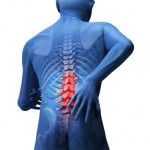Lower Back FAQ
Everyone should be aware of what to do in the case of lower back pain. Some lower back FAQ will help in taking proper decisions, and follow the right method of treatment for pain. Knowing the symptoms is essential to determine whether the pain is acute or chronic. It is necessary to have knowledge about natural home remedies and use of anti-inflammatory drugs including when to visit the doctor, if the pain persists. Knowing the common causes of pain can help you to take preventive steps, and after, you should have primary lessons on what to do at home to get relief from your back problems from this article.
Lower Back FAQ
Low back pain frequently asked questions.
Q: What are the symptoms?
A: Persistent pain that lasts a few days to a few weeks is known as acute. Pain that lasts for more than three months is considered chronic. Symptoms include:
» Muscle aches.
» Shooting or stabbing pain.
» Pain that radiates down your legs.
» Limited flexibility or range of motion of your back.
» Inability to stand straight.
Q: When should I see a doctor about my back pain?
A: Most back pain can be remedied at home with self-care. Pain should start to be relieved around 72 hours. Mild pain relievers such as Tylenol are suggested. You should see a doctor if the pain:
» Is consistent or intense, especially at night when you lay down.
» Spreads down one or both legs or if the pain goes lower than your knee.
» Causes weakness, numbness or tingling in one or both of your legs.
» Is associated with pain or throbbing in your abdomen, or fever.
» Is followed by a fall, hit to the back or other incident.
» Is accompanied by serious weight loss.
Q: What are common causes for back pain?
A: Back pain is often caused by:
» Strained muscles and ligaments.
» From improper or heavy lifting.
» After a sudden movement or twist.
Q: What can I do at home to help relieve back pain?
A: If you are experiencing intense back pain then it is OK to put yourself on bed rest, however, any more than a few days can become more harmful. Taking over-the-counter anti-inflammatory medicine such as Ibuprofen or pain reliever with acetaminophen like Tylenol will help you to deal with the pain. Physical therapy and exercise can also help to improve back pain. If you experience severe back pain, it is always recommended to consult with your doctor.
Having knowledge about some basic facts about back pain is essential to guide yourself to the proper course of treatment; otherwise, how else will you find out about back pain? Symptoms of back pain include muscle spasms, shooting pain radiating down the legs, and an inability to stand straight due to lack of flexibility.
You should consult a doctor if the pain persists, especially at night and accompanied by weight loss. There can be a many different symptoms identified when you carry out different movements that result in weakness, numbness, or tingling sensations. If you have a fever with throbbing pain around the abdomen, you have back pain. To get relief from intense back pain, you should take rest for not more than a couple of days and take anti-inflammatory drugs.
Physical therapy and exercise can help in reducing back pain, and ultimately, you should consult a doctor. These lower back FAQ will help you in taking the right decision to fight against back pain whether it is acute or chronic.
In this video Dr. Jeff Echols teaches you about back pain and gives tips on how to stretch the back and relieve pain and demonstrates how flexion distraction tables are used in chiropractic adjustment.
Steve Lockhart demonstrates the principals of SLM Bodywork as he runs through a typical diagnosis of a back pain sufferer.
You might also like:
Tags: lower back faq, Prevention, Treatment















